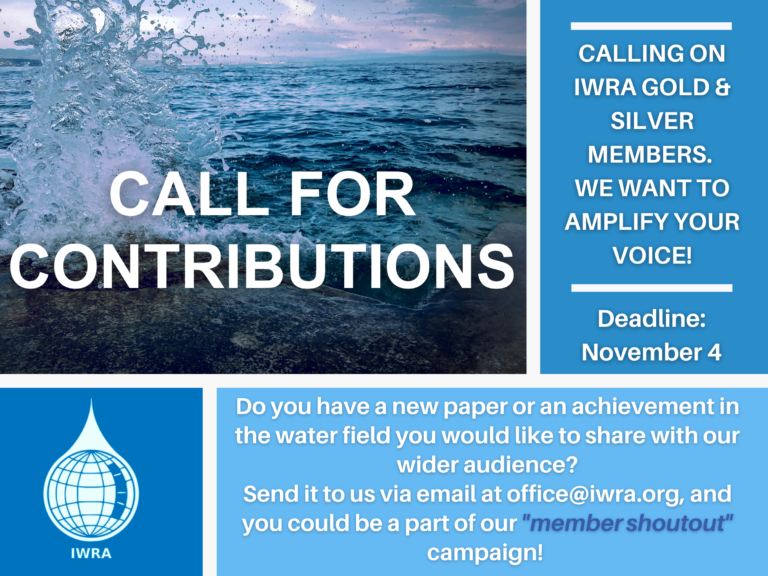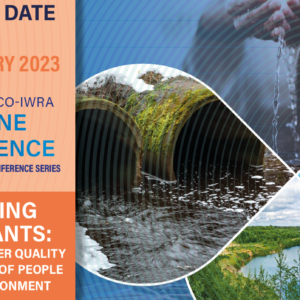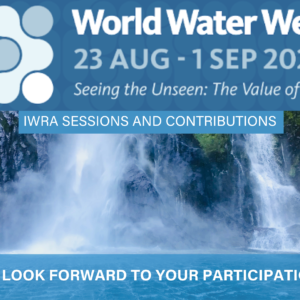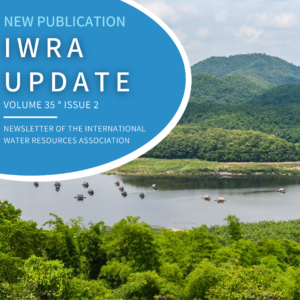
We are pleased to invite submissions for our “Member Shoutout” social media campaign, where we will be highlighting the works and achievements of our Gold and Silver members with our wider audience. This campaign aims to provide a platform for researchers, practitioners, and advocates across the water field to learn more about the exemplary work of IWRA members.
You are invited to submit a publication or achievement that you would like us to share via email at office@iwra.org by 4th November 2022.
Requirements
- You must have an active IWRA Gold or Silver member subscription.
- You must be the author or one of the authors of the publication.
- The achievement must clearly indicate your name.
- Publications or achievements should be connected to the broader water field.
Submission Format
- A short description of the content you are sharing (50-70 words max.)
- Provide a Link to the publication or achievement
- A recent professional/headshot picture of you
Please note: The publicising of the work will be on a first-come-first-served basis.




